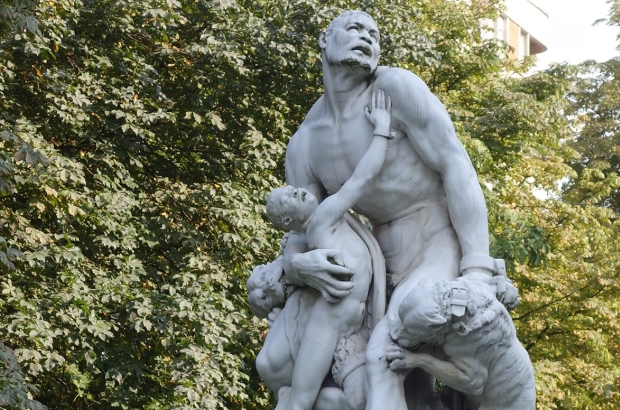- Daily & Weekly newsletters
- Buy & download The Bulletin
- Comment on our articles
Brussels pushes ahead with plan to remove colonial heritage from public spaces
Brussels is moving along with its plans to decolonise public spaces in the Belgian capital, meaning remove monuments or other such displays that glorify historical figures who were deeply involved in perpetuating violence in and subjugation of other countries.
The plans include feasibility studies, a commemorative day and training for civil servants, Bruzz reports.
“We do not want to rush things,” said state secretary for town planning and heritage Pascal Smet, who did not specify which statues or monuments could be affected.
Smet’s action plan comes after the recommendations of a working group set up in late 2020 in the wake of the global protests around Black Lives Matter and the social debate about colonial traces in public spaces.
“Statues will certainly disappear, but first the dialogue with academics, citizens and stakeholders on this must continue,” Smet told Bruzz.
“Something like this is necessary, especially after the official report that Ixelles received last year because the municipality had removed the bust of Emile Storms [one of the key figures tasked by Leopold II with colonising Congo] without following urban planning procedures.”
The action plan consists of a total of 14 pillars, including the appointment of a coordinator who will head a committee to monitor the various action points.
Those action points include, for example, the development of a methodology around permit applications for colonial traces such as statues.
Feasibility studies will be carried out for several ideas, such as a storage facility for statues glorifying colonisation, a memorial to the victims of colonialism and a centre for the interpretation of decolonisation.
The depot would be "no mere logistical infrastructure, but a symbolic public place and one of the components that will mark the decolonial transformation of the urban monument landscape", Smet said.
“It’s only by exploring feasibility that we can achieve the best result,” he added.
“We have been at it for a while now since the whole project was launched. It makes no sense to rush now. We want to make correct and balanced decisions through these feasibility studies.”
The recommendations of the working group include removing or transforming the main monument honouring Leopold II on Place du Trône.
Other colonial traces, such as the statue 'Runaway black slaves surprised by dogs' on Avenue Louise, should be irrevocably torn down, according to the group.
A total of €200,000 will be allocated for the feasibility studies with a maximum timeframe of two years.
Work will also be done to complete inventories of movable, immovable and natural heritage with a link to colonisation.
The action plan will also feature prominently in the calls for projects launched by the public service equal.brussels, and officials from various Brussels government agencies will be trained and made aware of the decolonisation of the public space.
Cooperation with the federal level of Belgian government is also being initiated.

















Comments
Rather than spending all that money for 'feasibility studies', why not leave the statue and add a well-written plaque condemning slavery and explaining what the statue represents and how wrong/immoral it was to have treated Congolese people in such a manner.